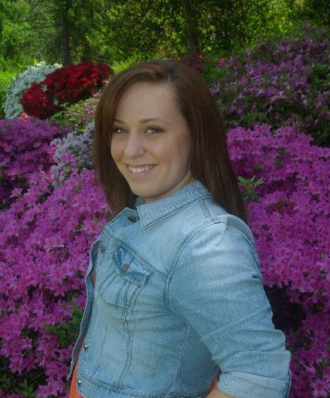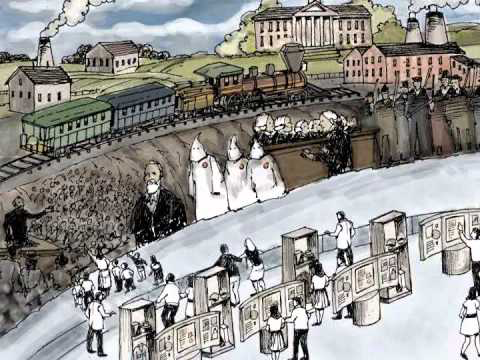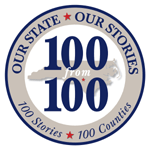Throughout American history, no time period has inspired more debate and contention than the events surrounding the Civil War, particularly in North Carolina. From the swamps of Robeson County to the bitter partisan wars of the Southern Appalachians, the war’s legacy cut deep into residents’ identities, leaving scars that persist to the present day.
In an effort to record the varied Civil War experiences passed down through N.C. familes, regional historians across the state are collecting narratives as part of the “Our State, Our Stories” Initiative, which began in August 2015 and runs through May of this year.
The stories gathered will be included in a new, state of the art North Carolina Civil War History Center in Fayetteville, near the site of the Confederate Arsenal destroyed by Union General William T. Sherman’s army in 1865. Scheduled to be completed by 2020, the 65 million dollar museum will feature interactive exhibits, online digital components for grade-school students in addition to the collected narratives.
Stitches in time
Katherine Calhoun, a local historian and graduating senior at UNC-Asheville, says she became involved in the project through her advisor, Professor of History Darin Waters, who also serves on the N.C. Civil War History Center’s Advisory Committee. As one of ten appointed “story collectors” for the project, Calhoun is tasked with helping to meet the Center’s lofty goal of gathering 100 separate stories from each of North Carolina’s 100 counties.
“We’re often struggle with these themes of memory ,which aren’t really objective in the sense of history,” she notes. “What we want to do [with this project] is demonstrate how those two things — history and memory — can go together and how it’s important to look at them side-by-side.”

Since August of 2015, Calhoun has been reaching out to local museums and residents to try and elicit as many narratives as possible. In the beginning, she says, results were slow in coming. “People say they don’t feel like they have enough for a story,” she reports, “but we want people to know that the story submission form is less than 1,000 words. We’re not asking for a novel.”
While the Civil War History Center has managed to collect hundreds of stories to date, Calhoun says many more are needed accurately represent all parts of North Carolina’s Civil War heritage. “More and more come in every day, but the majority of them are from the east,” she notes. “The mountains need more stories!”
Nor are collectors concerned with the factual particulars of any story, she adds. “Memory’s not factual by nature, and we’re never going to be able to say any story is 100 percent a fact. We think it’s important to demonstrate that the way we remember things and the way they actually happened are a little bit different.”
Handle with care
On of the more challenging aspects of gathering family recollections is the issue of establishing trust with reticent communities. “I found that those two groups [most reticent], interestingly enough, are on the opposite ends of the spectrum,” Calhoun says. “They are the Sons of Confederate Veterans or the African-American community.”
Much of this mistrust stems from anxiety that personal histories may be distorted for political reasons, Calhoun believes. “It comes down to a fear that their story, the way they tell it, will be manipulated to suit a particular political end. That’s just not the case, and we really want people to know that.”
While the events of 150 years ago may seem unimportant to some, Calhoun says that the echoes of what transpired in North Carolina before, during and after the war can still be heard in much of today’s political discourse: “Right now we have this renewed Civil Rights movement — we have Black Lives Matter, the movement to remove Confederate symbolism. In a sense, we’re reconstructing Reconstruction, looking at it and asking how did this really go down? Did it ever really end?”
These continued re-examinations of what it means to be American and how North Carolinians relate to each other make the “Our States, Our Stories” initiative all the more relevant. “Getting these stories into one space is a great way to bring history into the present and allow people to understand each other and where they’ve come from,” she notes, “how we’ve grown over time and what we can do now to address and heal from it.”
Letting history be heard
Contributing a story to the project can be done from the comfort of one’s own home, through the online submission form at the N.C. Civil War History Museum’s website. Calhoun also welcomes anyone interested in submitting a story or learning more about the project to contact her directly by email (kcalhoun@unca.edu) or on twitter at @wnc_historyblog or @civilwarnc. “We want these different points of view, the weird, kind of complicated stories,” she explains.
For those who may not have a family connection to the war in North Carolina, but still want to support the N.C. Civil War History Center, Calhoun says that there are ample opportunities to donate to the effort. “Even if you grew up in Missoula and don’t have anything to share for North Carolina, you can still very generously make a donation,” she says. You’ll receive a nice little bumper sticker and a quarterly newsletter that will keep you up to date on all this stuff.”
For larger donors, naming rights to exhibits or wings of the museum are still available as well. Donations can be made online at nccivilwarcenter.org or by contacting the Center at NCCivilWarCenter@gmail.com.
“The Civil War is so often romanticized and sensationalized — the picture so many people have of the Civil War is Scarlet O’Hara and Rhett and all their doings. In reality, it was more horrible than any of us can imagine.”
Bringing the true brutal nature of the war in N.C. to light, she adds, is the ultimate goal of the project. “Really and truly, I think this museum can be a place where people can come with assumptions and leave without them, being around these stories and hearing people who are different than you, what their opinion might be, can help to change your world view. This is an opportunity for everyone’s story to be told.”





Any NC project has to include a letter written to Gov. Vance by a Mr. Siler. Vance forwarded it to John Davis, and it is in Davis’ archives. It is heart wrenching.
Jeff Davis.
Just what we need, more incentives for the unreconstructed to carry on about their “hay-tige”.
Hey Big Al. Thanks for reading! In response to your comment: I think the point of the “Our State, Our Stories” initiative is to allow a space for visitors to the impending Civil War History Center to compare the various ways residents of N.C. have recollected their family’s role in the conflict. As Ms. Calhoun states in the article, memory is not history, nor should it be regarded as pure “fact.” But by looking at the two side by side, we can observe how they coincide and veer off from each other, and perhaps discern why that might be.
It also allows for a greater understanding of how these interpretations of family oral tradition have colored people’s various perspectives into the present day. As Ms. Calhoun put it: “Getting these stories into one space is a great way to bring history into the present and allow people to understand each other and where they’ve come from, how we’ve grown over time and what we can do now to address and heal from it.”
Big Al, the History Center is about telling ALL the stories, not just from our “unreconstructed” friends. This weekend, for example, we are attending a meeting of descendants of African American Union soldiers (over 5,000 signed up in NE NC to fight for the Union) to get their stories.